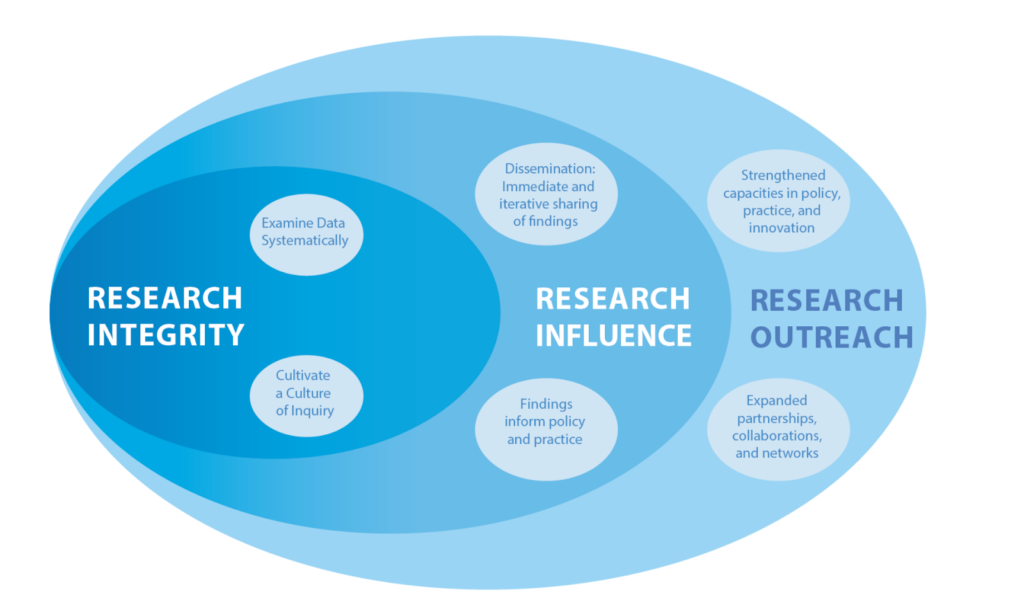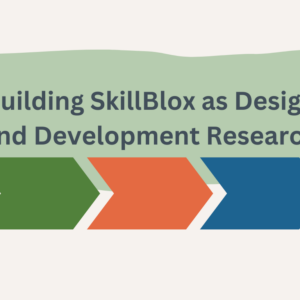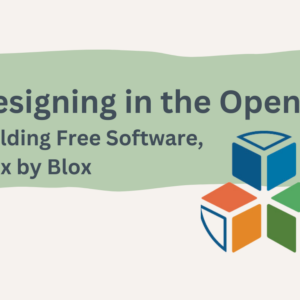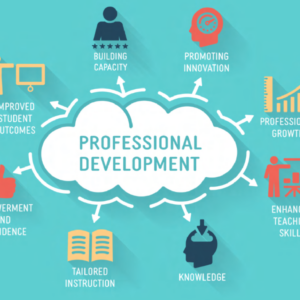By Gloria Jacobs and Jill Castek
The exciting research into the 21st Century Learning Ecosystems Opportunities (21CLEO) project has begun. We have developed our initial set of data collection tools and protocols to examine front-line service workers’ perspectives and experiences with employer provided education. Just last month, we received the go-ahead from the Portland State University Institutional Review Board to collect data. We’ve made our first forays into the field to conduct observations and interviews, and we are continuing to look for more sites for data collection. Please contact us at 21cleo@pdx.edu if you know of people or sites you would recommend for this research.
Outcomes and Goals
Traditionally, research is designed so that your questions are determined before going into the field, and those questions don’t change. This type of design is necessary if you’re comparing groups or locations, but we’re not doing that! Our intent is to figure out what types of questions we need to ask of working learners in a variety of workplace settings. The best way to figure that out is to listen closely to what our working learner participants have to say about their experiences, perspectives, and preferences. We also have to listen closely to what those of you who are working in the field have to say. Our outcomes and goals include:
- Implement an inclusive study in which participants are engaged in the project as research partners, rather than as simply the object of the research.
- Share and disseminate digestible findings that are engaging and easy to read. Regular posts will be timely and informative and will elicit engagement and interaction among project researchers and the retail and service industry stakeholders including working learners.
- Convene stakeholder expert advisory group and working learner expert advisory group. Meetings with these experts are aimed at expanding networking possibilities and facilitating cross-pollination of ideas.
- Use research discussions to pave the way for building networks. Network partners pool insights from across the retail and service sectors, trade and educational organizations, to pave the way forward for extended collaborative work.
- Distill research into findings that offer policy makers and employers sound information on which to base decision making.
Research Process
The illustration of our research process is anchored in an evaluation framework we adapted from Ofir & Schwandt, 2012.[1] The process includes three phases, research integrity, research influence, and research outreach, with sub-goals nested in each phase. Each subphase is described below and mapped in the figure above.
Cultivate a Culture of Inquiry: Researchers and advisory groups will rigorously examine and interrogate insights from data analysis. Discussions and data analysis will draw out multiple insights and perspectives that promote a wider examination of the core issues that will promote revisions and reimagined conclusions. Ultimately, iterations and revisions will lead to a high degree of confidence in research findings. These research findings will align with the lived experience of the worker-learners.
Examine data systematically: Data analysis will included a careful and thoughtful process for interrogating initial conclusions and linking them with corroborating evidence. Findings will represent an examination of issues from multiple perspectives to explain phenomena in an objective manner using data as evidence.
Share findings: Dissemination plans involve pushing out findings widely and broadly as they became available in order to prompt discussion and inform the field.
Build capacity: Outcomes and findings from research will be generative and will be used to create collective networks aimed at shared goals. Capacity building includes expanded partnerships, collaborations, and networks.
Formative feedback will be provided to the research team by two expert advisory groups made up of working learners and stakeholders. The project team will act on suggestions offered by the expert groups to ensure quality and thoroughness. The research team will build in regular reflection, formative project assessment, and intentional iterations driven by feedback offered by both groups. Through the process of presenting, discussing and refining insights at multiple phases across the research process, we will enact our values and commitment to iterative project improvement.
Data Collection Tools
Our initial data collection tools include a set of interview questions we will be asking working learners in order to hear from them about their experiences with the learning opportunities offered through their employers. We have also developed interview questions for instructors/trainers, employers, human resources personnel, and managers so that we can find out what messages are being sent to front-line service workers in different workplaces as well as what is being heard. Another way we’ll be collecting data is by observing learning environments whenever we can.
Jen Vanek, our team member from the EdTech Center at World Education, had the opportunity test our data collection tools for the first time in late January. She observed a class of working learners in a workplace ESL class at in international airport and interviewed the instructor. Plans to interview learners are in the works. Jen’s experience has already helped us refine our data collection processes. We’re learning what we need to focus on in our observations, and we’re learning what questions yield the richest data. We’ll take what we learned and use it to refine our data collection tools so that the next time we are in the field, we’ll be able to be more efficient and get at what we need to learn.
Communication and Dissemination
Throughout this project, we’ll be using the 21st Century LENS to share our insights with you and ask for your insights into what we’re doing, seeing, and learning. We want to hear from you about whether we are asking the full range of questions that could prompt a deeper understanding of working learners’ experiences. If we’re not asking what might spark reflection, we want to hear what you think we should be asking.
Please add your comments to this blog. You can also share your thoughts through Twitter. The Twitter hashtag we’re using for this work is #21CLEO.




